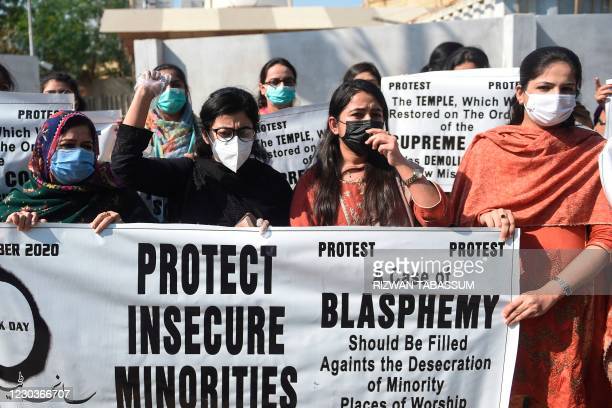
Pakistan, a country founded to protect the rights of minorities, has over 75 years become a state which does not protect the human rights of its citizens. In the 2022 annual report the Human Rights Commission of Pakistan has painted a sorry picture of where Pakistan stands today when it comes to civil liberties, religious freedoms and other fundamental human rights guaranteed by the Constitution.
As an editorial in Dawn notes, the report “is a blunt reminder of how the pillars of state — the legislature, judiciary and the executive — have failed in their duty to protect citizens from violence and political and economic exploitation. Particularly at risk are such vulnerable groups as religious minorities, women, sub-national groups, workers and children, while state institutions continue to violate each other’s territory, undermining their institutional capability and credibility.”
The report “specifies how the (ongoing) political and economic turmoil in the country has had a disastrous impact on the human rights situation, and points to the resurgence of terrorism that claimed 533 lives last year. The state’s growing intolerance towards dissenting opinions, free speech and the freedom of assembly has resulted in a large number of enforced disappearances — mostly in Balochistan — as well as the arrest of journalists, social media influencers, political workers and politicians linked to the opposition. Many were subjected to custodial torture while some are facing sedition charges.”
Furthermore, as the HRCP report point out, “the inability of the state and its different organs to rectify discriminatory legislation and implement the state’s writ and laws to convict perpetrators has led to an escalation in threats to religious freedom and sexual violence against women and children. The scale of violence and discrimination against trans persons was aggravated by the backlash against the hard-won Transgender Persons (Protection of Rights) Act, 2018. Incidents of mob lynching also appear to have risen, underscoring the fact that intolerance and a lack of respect for the laws of the land at the state level have now completely permeated our social and public life.”
In conclusion the Dawn editorial laments that “successive governments have failed to address them because the protection of vulnerable segments of society and human rights doesn’t figure on the agenda of political parties. It, therefore, isn’t surprising that the human rights community is losing the space which it had gained after a long struggle.”
![]()





